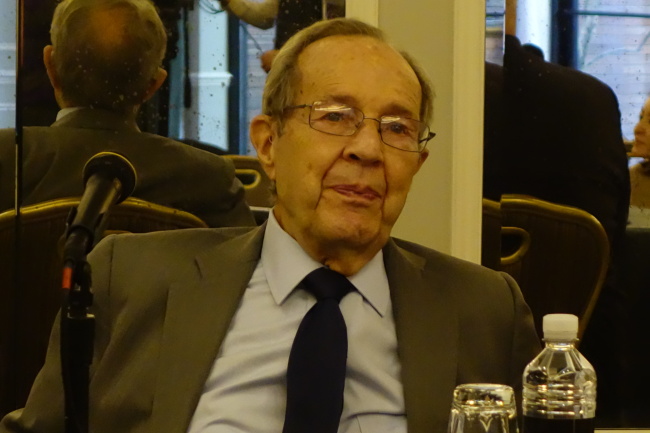US did not think sanctions would cause NK to give up nukes in 1991: report
By KH디지털2Published : Jan. 20, 2017 - 10:53
The United States thought in the early 1990s that economic sanctions would not make North Korea give up its nuclear weapons program even if such a step would significantly hurt the North's economy, a declassified report showed Friday.
The US analyzed the possible impacts of economic sanctions on North Korea and potential responses from the North, South Korea, China and others, according to the National Intelligence Council's report from December 1991 and titled "North Korea: Likely Response to Economic Sanctions."
The report said that the intelligence community believes that sanctions per se would not cause North Korea to abandon its nuclear weapons program, but they would significantly dent the North's economy.

North Korea's economy suffered a severe downturn in the mid-to-late 1990s, widely known as the "Arduous March" period, during which an estimated 3 million North Koreans are believed to have died from hunger.
Pyongyang was also in the early stages of developing its nuclear weapons program in the 1990s.
"The reduction of crude oil would be particularly troublesome," the report said, adding that the cutoff of oil deliveries would cause the North to speed up the shutdown of even key industries.
It said North Korea could move towards hostile responses including a possible terrorist action against the US or South Korean facilities or people if sanctions were to be enforced militarily.
"North Korea could raise tensions by staging military incidents along the Demilitarized Zone," which bisects the two Koreas, the report said.
The report raised doubt that stronger economic sanctions could pose a threat to the North's regime.
"In the short run at least, the result could produce more support for the leadership rather than any backlash or pressure for change," the report added.
North Korea has been advancing its nuclear and missile programs as it conducted two nuclear tests last year following those in 2006, 2009 and 2013. (Yonhap)








![[Graphic News] More Koreans say they plan long-distance trips this year](http://res.heraldm.com/phpwas/restmb_idxmake.php?idx=644&simg=/content/image/2024/04/17/20240417050828_0.gif&u=)
![[KH Explains] Hyundai's full hybrid edge to pay off amid slow transition to pure EVs](http://res.heraldm.com/phpwas/restmb_idxmake.php?idx=644&simg=/content/image/2024/04/18/20240418050645_0.jpg&u=20240419100350)







![[KH Explains] Hyundai's full hybrid edge to pay off amid slow transition to pure EVs](http://res.heraldm.com/phpwas/restmb_idxmake.php?idx=652&simg=/content/image/2024/04/18/20240418050645_0.jpg&u=20240419100350)

![[Today’s K-pop] Illit drops debut single remix](http://res.heraldm.com/phpwas/restmb_idxmake.php?idx=642&simg=/content/image/2024/04/19/20240419050612_0.jpg&u=)